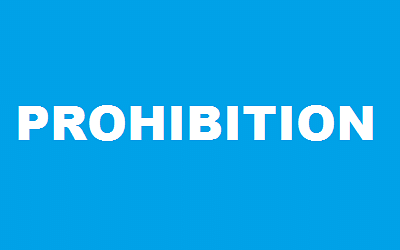
The Futility of Prohibiting Alcohol
Alcohol may be partly contributing to a host of crimes, but the long-term solution isn’t prohibition, which many Indian states have chosen to adopt, but rather better regulation coupled with an effective enforcement of justice, law, and order against such crimes.
Kerala is the newest among several states to follow the prohibition suit, with its Congress-led United Democratic Front government having sought to ban alcohol in a phased manner in ten years. This news is particularly striking in light of the fact that Kerala has the highest per capita consumption of liquor in the country at 8.3 litres, which is more than double the national average of 4 litres. Such prodigious level of consumption will hardly lend itself to prohibition. On the contrary, it is more likely to drive alcohol sales underground, while creating massive opportunities for a thriving black market.
It is not uncommon for state governments to increasingly rely on alcohol revenues to fund their extravagant, social schemes. These revenues make up to one-fifth of most state government budgets, and the contribution is particularly substantial for Kerala given its high consumption level. Last year, Kerala registered Rs. 8433 crores in revenues from bottle sales, excise duty, and commercial tax. This comprised approximately 22 percent of the state government’s total revenue in 2013-14.
While it may not be a legitimate reason against proscribing liquor consumption, alcohol’s staggering share in state’s total revenues does provide an important perspective on the exorbitant costs to the exchequer in the event of prohibition.
Damage to Kerala’s tourism industry, which brought close to Rs. 23,000 crore last year, could be equally disastrous as many tourists may choose other options for travel. For better or for worse, however, its neighbouring state Karnataka might see a rise in demand for and revenues from alcohol. New hotels and bars could open up near border areas with a view to serve the increased liquor demand from Kerala locals.
These are precisely the kind of unintended outcomes, resulting primarily from unnecessary government interference in economic activities, that the noted economist Henry Hazlitt warned us against in his classic 1946 treatise called Economics in One Lesson. He wrote, “The art of economics consists in looking not merely at the immediate but at the longer effects of any act or policy; it consists in tracing the consequences of that policy not merely for one group but for all groups.” Governments, in attempting to engineer better social outcomes and enforce sobriety, tend to sacrifice good economics at the altar of political compulsions.
The hooch tragedy of August 2009, which killed close to 148 people in Ahmedabad, is a grim reminder of how impulsive policy decisions could trigger unintended consequences for people. Addicts often switch to substitute yet more harmful substances such as weed, cocaine, and even spurious liquor such as hooch, which is a low-cost as well as easily accessible alternative for the poor. Arresting the consumption of these alternatives would be anything but a straightforward task for state governments, as it would entail higher government spending and budgetary allotment at a time when most states are busy figuring out how to fund their loss-making public sector units.
On net effect, the costs of prohibition significantly outweigh its benefits. We would be better off spending limited state resources on more productive endeavours such as equipping police forces with improved technology, hiring more police personnel or even raising their salary, and spending greater resources on ensuring women’s safety.